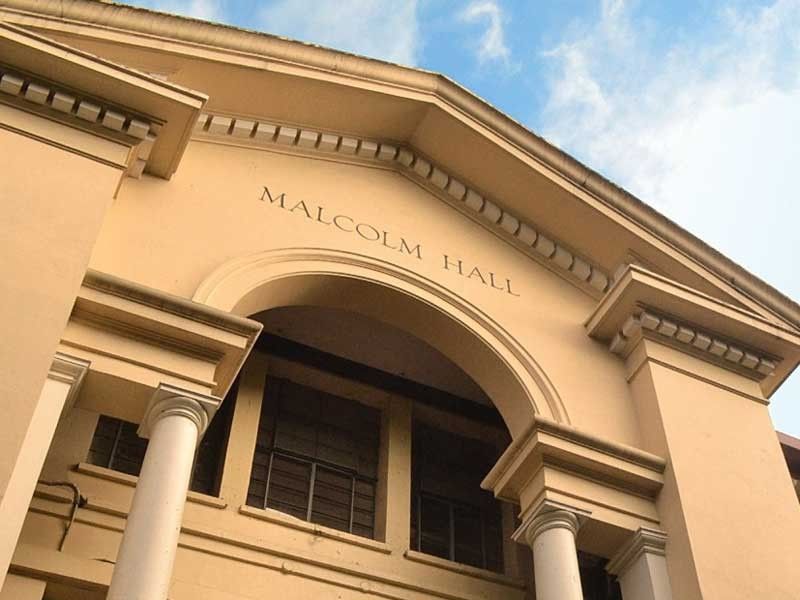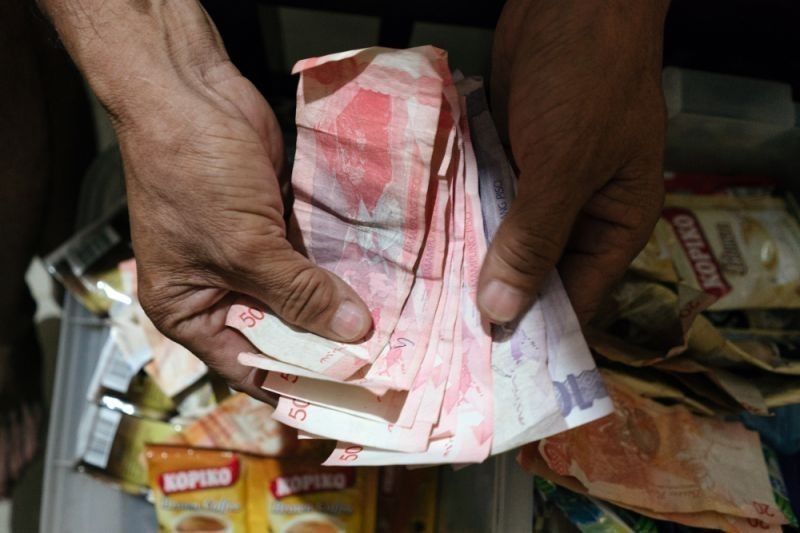
Upgrade to High-Speed Internet for only ₱1499/month!
Enjoy up to 100 Mbps fiber broadband, perfect for browsing, streaming, and gaming.
Visit Suniway.ph to learn
MANILA, Philippines — Maj. Gen. Nicolas Torre III, the man who arrested former president Rodrigo Duterte and flushed out pastor Apollo Quiboloy from his hideout in Davao City, has made history as the first graduate of the Philippine National Police Academy (PNPA) to be appointed chief of the 235,000-strong national police force.
The son of a police officer and a teacher, Torre is set to take over the post of Gen. Rommel Marbil who retires on June 2.
A native of Jolo, Sulu, the 55-year-old Torre is the fourth PNP chief under the administration of President Marcos and the 31st in the police force’s history.
Torre shared an image of his mobile phone which received at least 1,225 text messages and 23 missed calls after his appointment was announced yesterday by Executive Secretary Lucas Bersamin.
PMAyers’ dominance in PNP ended
Torre is a member of PNPA Tagapaglunsad Class of 1993.
Torre ended the dominance of Philippine Military Academy graduates in the police force as Marcos did not choose someone from PMA Classes 91 and 92, the batches where the next PNP chief could have come from.
Torre thanked his supporters in a Facebook post but shunned making or receiving phone calls, saying his cellphone was already swamped with messages. “Thanks for the support. Just text, my phone is getting hot,” he said in his post in jest.
His exploits did not sit well with DDS or Diehard Duterte Supporters who continue to attack him on social media platforms.
As director of the Criminal Investigation and Detection Group, he led the PNP’s primary investigative arm in the arrest of other high-profile personalities.
Torre is also an innovator as it was he who introduced the three-minute response time when he was director of the Quezon City Police District.
Shrugging off insinuations that Torre’s designation as PNP chief was his “reward” for arresting two prominent critics of the administration, Bersamin maintained that President Marcos promotes officials based on merits.
“You know, all promotions are rewards, but most promotions are given on merit. So, let us assume that this was given on merit because you know it was not an easy decision on the part of the President. He considered, to my recollection, five names and you must probably have an idea of who those five were,” the executive secretary said at a press briefing.
He admitted the arrest of Duterte and Quiboloy may have been factored in in Torre’s appointment.
“I am not going to discount that, but there may be other qualities of General Torre that he might have considered in comparison to the qualities of those others who were not given this responsibility,” Bersamin said.
“He (Torre) went at it like it was an ordinary thing, very professional – so, we should praise him for that. There may be other situations like arresting a kidnapper – that’s another kind of operation. So, let us not judge a person on the basis of one that he had done very excellently, his next one might be a failure. That means, it’s not going to be easy for us to predict,” the executive secretary added.
As for Duterte’s arrest, Bersamin maintained that the operation was “perfectly legal according to international law.”
Interior and Local Government Secretary Jonvic Remulla congratulated Torre on his appointment as he noted the general’s strong credentials and exemplary service.
“We are confident his leadership will drive transformation, innovation, and strengthen the PNP’s mandate to serve and protect,” he said in a statement.
Remulla said his department stands ready to work with Torre in advancing internal reforms, fighting illegal drugs and crime and enhancing police visibility.
He also lauded outgoing PNP chief Marbil for his dedicated service and outstanding leadership. Marbil was supposed to bow out of the service last Feb. 7. Marcos extended his term for nearly four months because of the midterm elections.
Torre appointment hailed
Speaker Martin Romualdez welcomed the appointment of Torre whom he described as a no-nonsense leader with the courage, integrity, and operational command needed to lead the force at a crucial time.
“General Torre is stepping into this role with a record that speaks for itself. He is a principled and fearless officer, the kind of leader the PNP needs to restore credibility, enforce the law without fear or favor, and protect the Filipino people with professionalism and respect,” Romualdez said.
Lanao del Sur Rep. Zia Alonto Adiong, Zambales Rep. Jay Khonghun, La Union Rep. Paolo Francisco Ortega V, 1RIDER Rep. Rodge Gutierrez and Manila Rep. Ernest Dionisio all issued a joint statement praising Torre’s track record and leadership.
Former DILG chief Benhur Abalos also welcomed the appointment of Torre, describing him as “a man of integrity and action” capable of leading the 230,000-strong force.
“General Torre has the experience, discipline, and character to steer the PNP forward. He is the right man for the job,” Abalos said in a statement.
Abalos, who spearheaded the coordinated efforts to arrest Quiboloy in Davao City, said Torre was “calm under pressure and decisive on the ground,” adding that “his integrity and courage were on full display during that mission.”
Abalos said Torre’s role in the Quiboloy arrest showed “unwavering commitment to the rule of law, no matter how politically sensitive or high-profile the case.”
“He will lead by example. Torre’s leadership will deepen trust and discipline in the ranks,” he added.
Another characteristic that sets Torre apart, according to Abalos, is the new PNP chief’s innovation.
As Quezon City police chief, Torre was recognized as an outstanding police chief for pioneering the use of drones to enhance police response times and surveillance. “That kind of leadership is exactly what the PNP needs today,” Abalos said.
He also thanked outgoing PNP chief Marbil for his service, citing his efforts to improve internal reforms and community policing. Abalos said Marbil led initiatives to modernize police operations and boost public trust. — Bella Cariaso, Jose Rodel Clapano

 1 week ago
20
1 week ago
20



